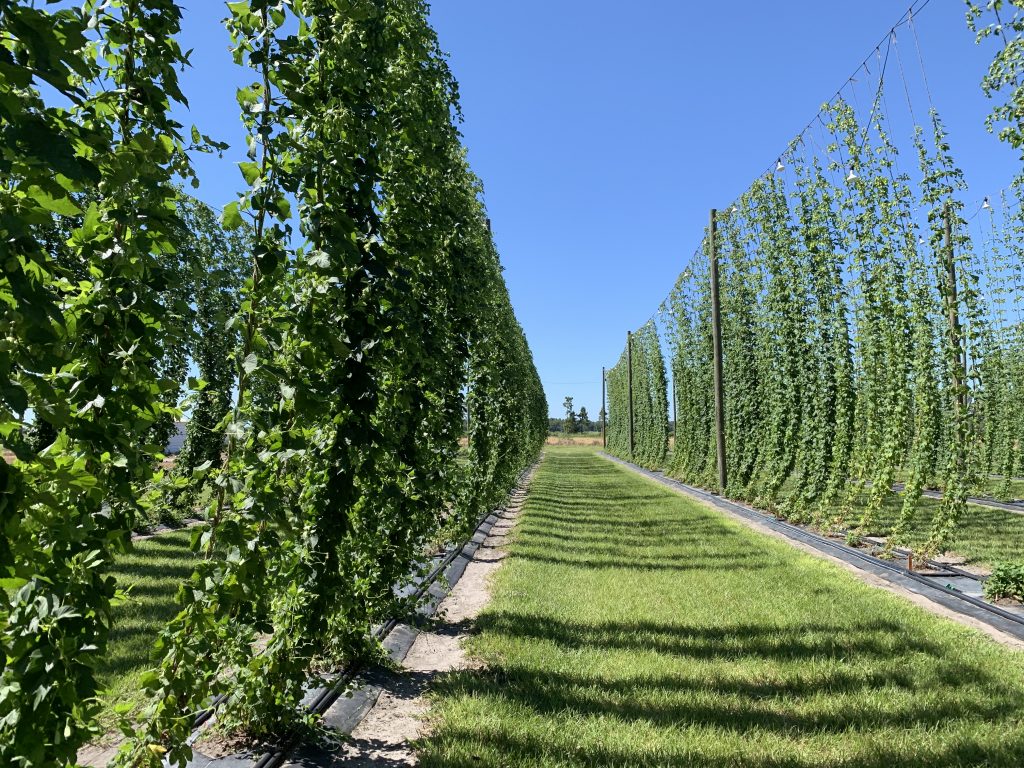By Clint Thompson
Successful control of nematodes in hops production is feasible in Florida. But potential growers need to ensure their hops production is firmly established, says Johan Desaeger, assistant professor of entomology and nematology at the University of Florida Institute of Food and Agricultural Sciences Gulf Coast Research and Education Center.

“We know that hops is a good host for root-knot. We’ve known that for many years when they first started planting different hop cultivars here. We noticed a lot of these cultivar varieties were really stunted, poor growing. When we looked at the roots, they were just loaded with galls,” Desaeger said. “There are some cultivars that do better, like the one that we’re growing now, it’s almost entirely the Cascade cultivar. That variety seems to be more tolerant to root-knot. There are certain cultivars of hops that we definitely can not grow here because of root-knot, but then there are some others that seem to be more tolerant.
“The other thing with hops is it is a perennial crop. Like with a lot of perennial crops, if you can get them established properly, once they start developing their root system – which in the case of hops is huge, extremely extensive – they are able to tolerate and outgrow that nematode damage. I think that’s what we noticed here is that right now we still find some nematodes, but because the root system is spread out to meters deep and meters wide, they can overcome that damage.”
If growers are interested in establishing a hops yard, they should get their soils checked for nematodes. If nematodes are present, which are very likely in Florida, a pre-treatment should be implemented before planting. A K-PAM treatment will knock the nematodes back to establish plantings.









